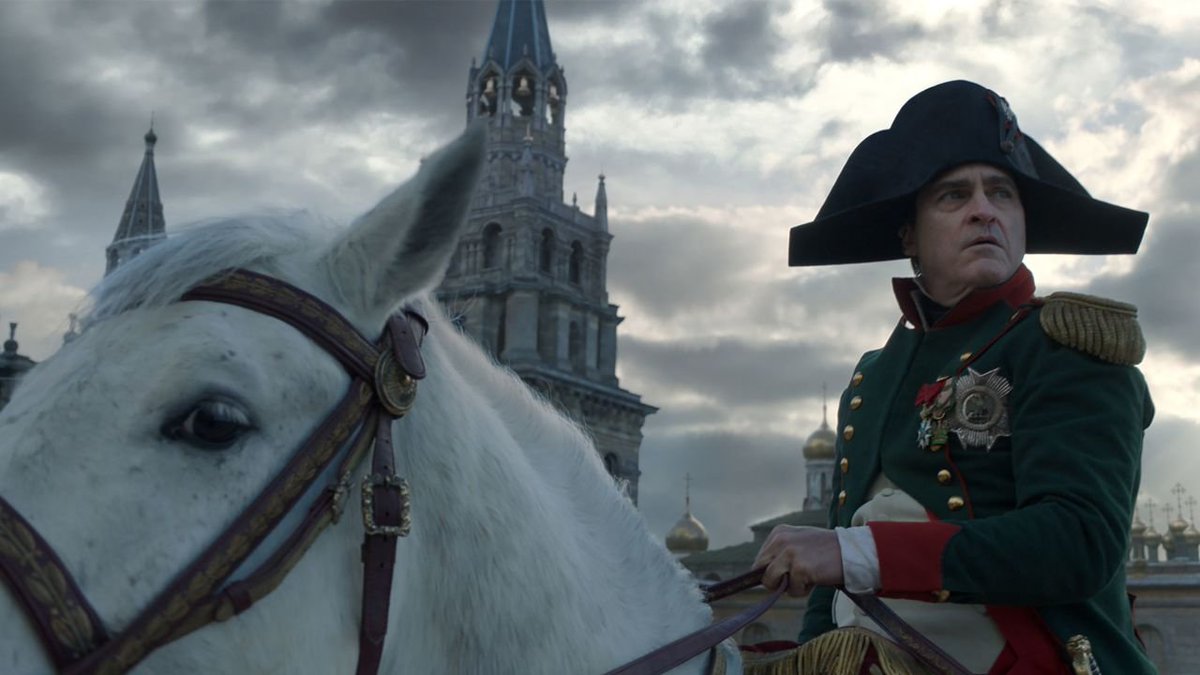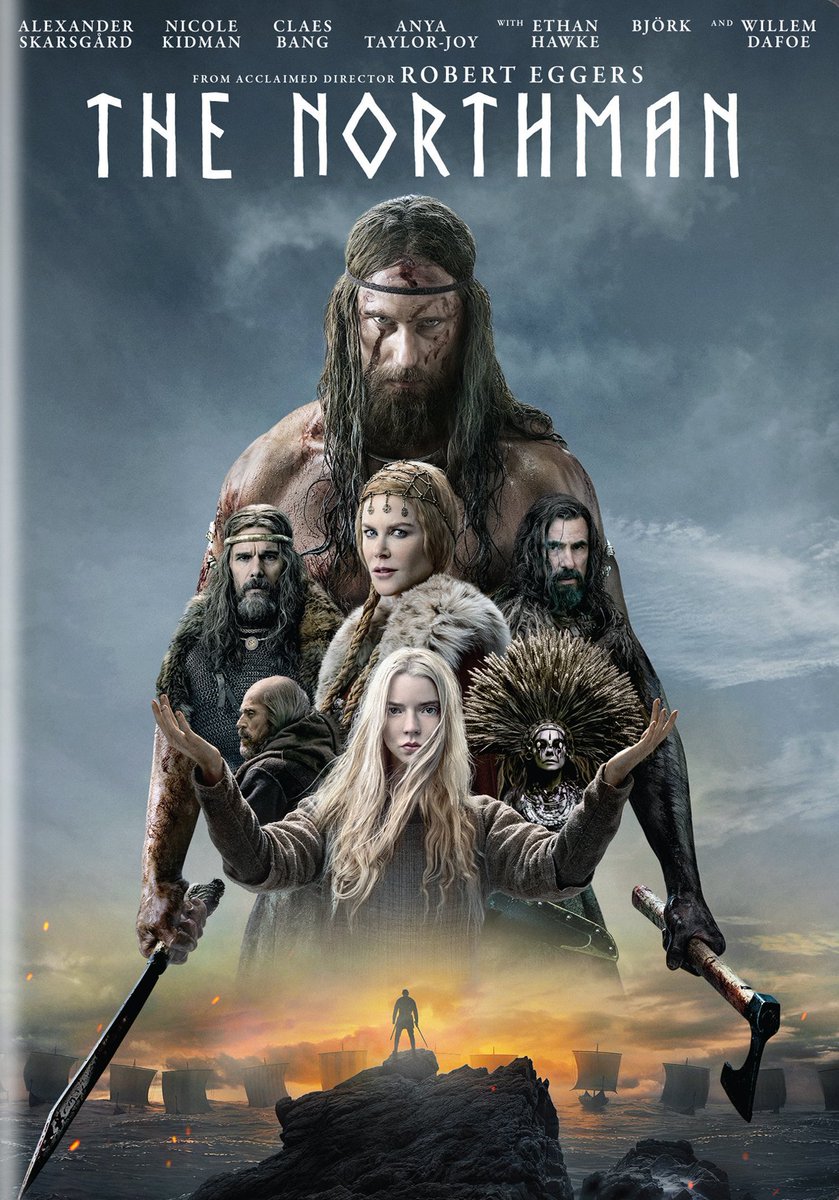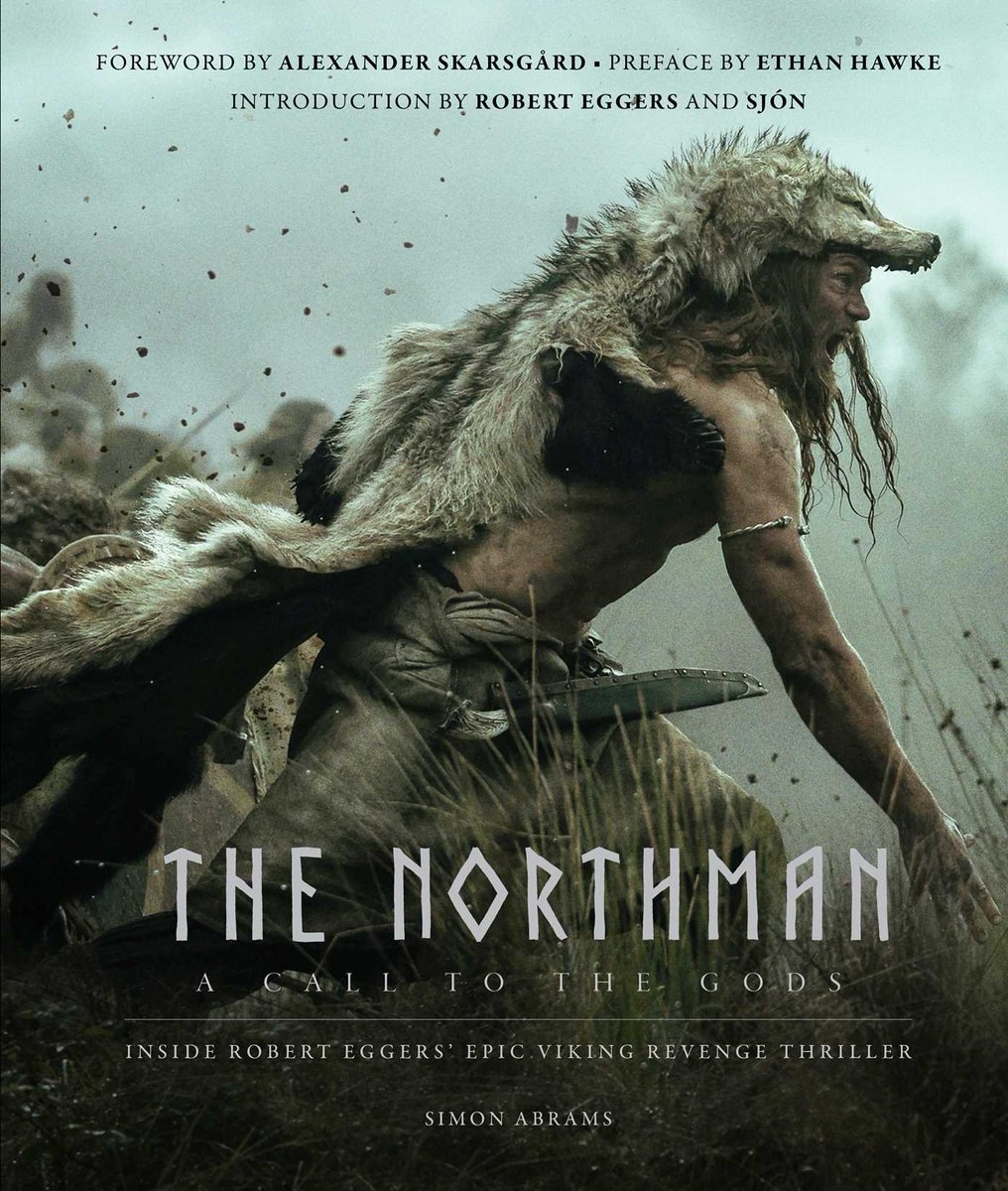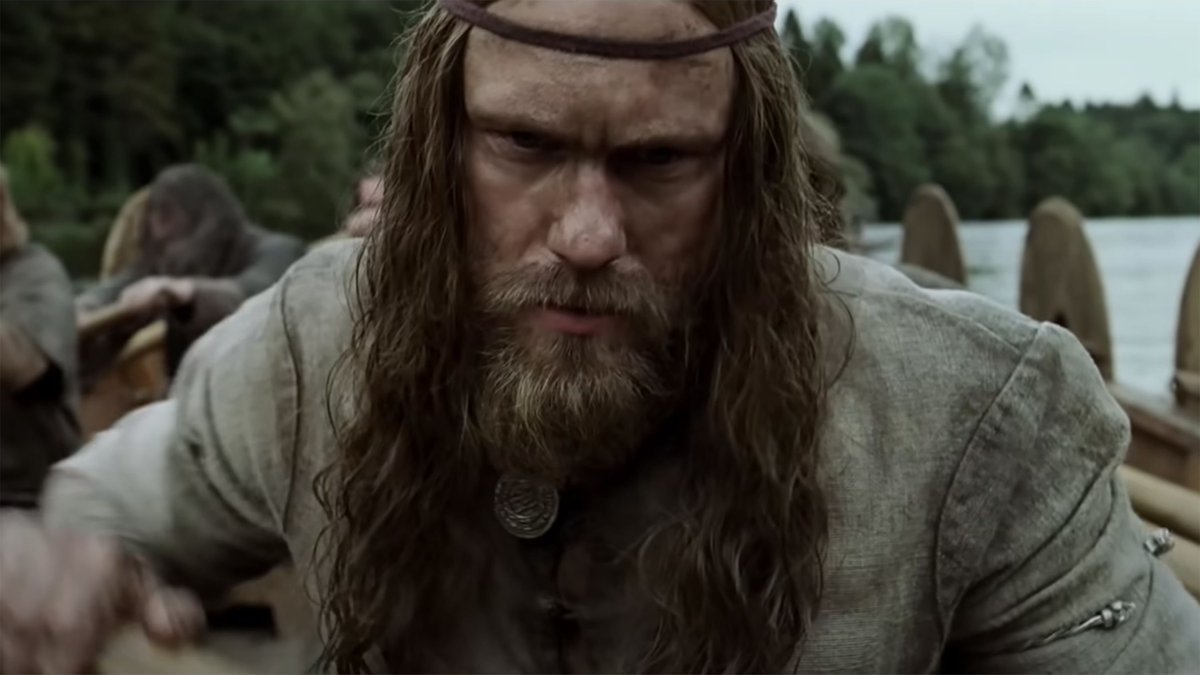And now, the nit-picky history details/battle thread.
TL;DR Ridley Scott's Napoleon movie is probably, in all seriousness, worse for Napoleonic Warfare than The Patriot is for eighteenth-century warfare. I'm going to focus on military history here in this one. 1/25
TL;DR Ridley Scott's Napoleon movie is probably, in all seriousness, worse for Napoleonic Warfare than The Patriot is for eighteenth-century warfare. I'm going to focus on military history here in this one. 1/25
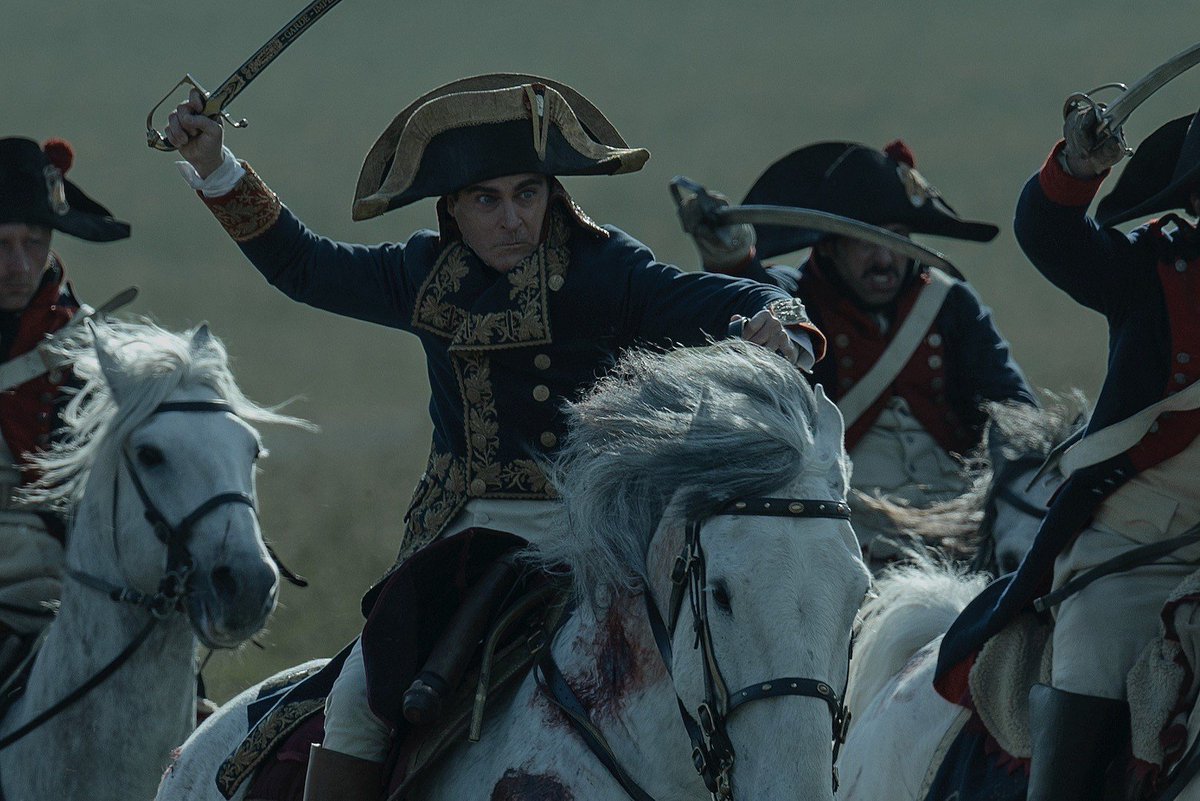
We'll start, as before, with the good. The majority of the military uniforms we see up close, (on Napoleon) are well-made and show signs of being hand finished. Some of them could fit better. Once again, the grenadier uniforms in the 18 Brumaire Coup look nice. 2/25 

I'm tired, and it's close to midnight (I can hear Ridley Scott's rejoinder "get a life" ringing in my ears.) So, more or less in chronological order from the film, the battles and details.
Sir Ridley: Mortars did not look like that. 3/25
Sir Ridley: Mortars did not look like that. 3/25
I loved Napoleon's comment on the low-quality of conscripted troops in the French Revolution. This works nice with a thread I wrote. Also, LOVED the prevalence of striped trousers on the troops in the Toulon sequence. 4/25
https://x.com/KKriegeBlog/status/1709654283690398189?s=20
The Whiff of Grapeshot/13 Vendémiaire sequence actually is a pretty great depiction showing what grapeshot does to a mass of bodies. Yikes. The cannons do recoil throughout the film. Progress from the 1970s Waterloo movie, but in almost every other way, a regression. 5/25
I promise I won't spend this whole thread whinging about the stuff I would have included, but WHERE IS THE 1796 ITALY CAMPAIGN?
WHERE IS THE BATTLE OF LEIPZIG?
WHERE IS THE 1813-1814 as a whole???
1814 is epic, and we just don't get it. 6/25
WHERE IS THE BATTLE OF LEIPZIG?
WHERE IS THE 1813-1814 as a whole???
1814 is epic, and we just don't get it. 6/25

Shooting the Pyramids with roundshot/360 no scoping the Mamluk commander in one salvo is indeed, a fast way of saying "Napoleon took Egypt." Well done, Sir Ridley. The director's cut is all but assured to include a Marengo sequence. 7/25
The cavalry charge that is used to represent Borodino here likely came from Marengo, based on Napoleon's physical appearance and costuming. 8/25
Austerlitz is probably the most memorable sequence of the film. It (and Waterloo) is trash from a historical perspective, but visually stunning. Command and control is completely ignored. Napoleon says something in an indoor voice, and thousands of troops execute it. 9/25
Historians agree that almost no (like 2-5) soldiers died by falling through ice at Austerlitz. That doesn't get in the way of turning this the retreat over the Satschan ponds into the main story of the Battle of Austerlitz.
"The Sun of Austerlitz" is conspicuously absent. 10/25
"The Sun of Austerlitz" is conspicuously absent. 10/25

ALSO WHAT IS GOING ON WITH ALL OF THESE FLAGS. The camps are absolutely tiny, but there seems to be a national flag flying from every tent. Or every trench line. Or in everyone's hand.
Jeepers, Obi-Wan, that's a lot of flags. 11/25
Jeepers, Obi-Wan, that's a lot of flags. 11/25

Napoleon's Marshals are also quite absent from this film. There are a number of men who stand around Napoleon in feathery hats. Junot is a character. The idea of Marshals isn't referenced until Napoleon is a prisoner after Waterloo, blaming them for his defeats. 12/25 

Napoleon's charisma is notably absent from this film, as I noted in my other thread on the movie (not the history/battles) but I did love the short sequence of him handing out bread on the march to Moscow, referencing men at Austerlitz. 13/25
https://x.com/KKriegeBlog/status/1728262086084702236?s=20
We finally march on Moscow, in a depiction of the Grande Armée that is notably less grand than the 2016 BBC War and Peace. Dismounted Cossacks with janky mortars attack the army in hit and fade attacks, nailing prisoners to trees. 14/25
The idea that a majority of the Grande Armée died on the way into Russia due to disease is not referenced. Borodino is 30 seconds long. I have rarely been more bitterly disappointed. Napoleon charges in footage likely meant to depict Marengo. 15/25
I did absolutely love the Russian military uniforms, correctly depicting the troops wearing the gaitered trousers of the 1812 campaign. Score one for the best legwear. 16/25 

Napoleon is very upset that Alexander is not waiting for him in Moscow. Like, so mad. Then he goes to bed. Then Moscow is on fire. What is this movie? Then they retreat from Moscow. Suddenly, everything is very cold. Napoleon's early retreat is not mentioned, bc 17/25
The next scene is LITERALLY the abdication paper in 1814. At this moment I literally yelled, 'WHAT' in the theater. I would have felt bad if the woman in the middle of my row hadn't literally got call earlier in the movie. Napoleon abdicates. 18/25
Standard Elba sequence. Return due to Alexander visiting Josephine. Hmmmm. Queue Waterloo. It rains, not just during the night before the battle, but literally until the moment Napoleon orders the attack. Hmmmm. 19/25
Both sides are entrenched in multiple lines. Infantry are descending towards the plain, artillery on the crest. A 95th Riflemen has a bead on Napoleon with his (SCOPED?) rifle. 20/25


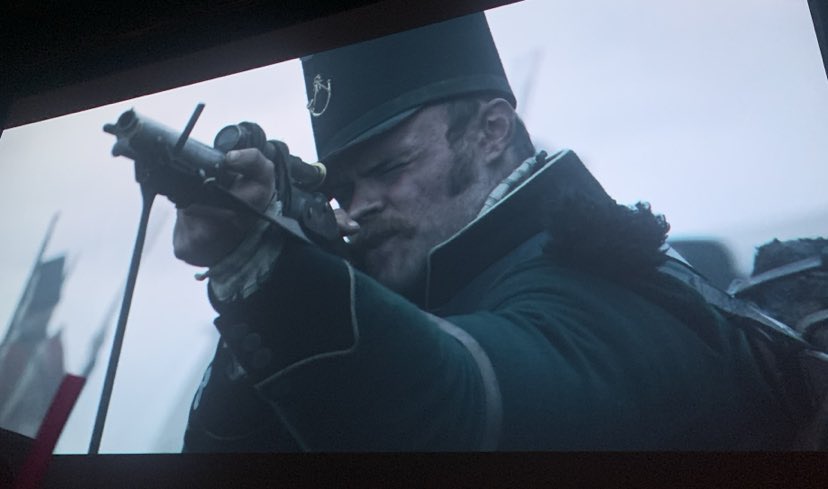
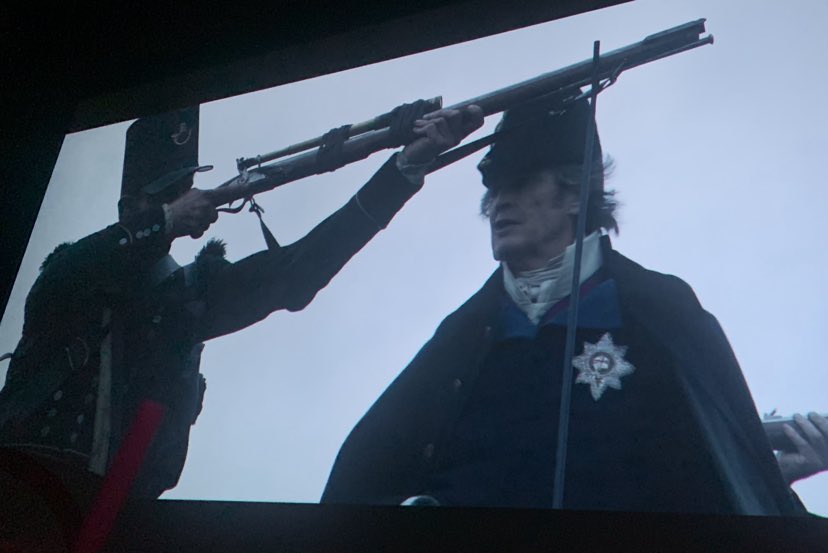
Between the lack of La Haye Sainte, Hougoumont, the WW1 style confrontation emerging, and Mustachioed Mr. Sharpe above, your correspondent was containing his disapproval with great difficulty. 21/25
The French begin their bombardment. The infantry go forward. We get 5 seconds with Blücher. (No, "raise the black flags, my children".) After seeing the Prussian army on the march, your correspondent felt a little better that he had paid to watch this disaster. 22/25 

The French infantry are repulsed, Ney begins his cavalry attack. At that point, Wellington gives the order "Prepare to receive cavalry." The British infantry then LEAVE (!!!!!!!) their palisaded entrenchments, advance 10 meters, and form square in the open. 23/25
Fortunately, Napoleon brings up a reserve (the guard are never named in the movie) and the whole thing degenerates into mindless Hollywood hand-to-hand combat until the Prussians arrive. Yay. 24/25
Like most bad movies, bayonets are fixed inconsistently. Skirmishers are kind of used, and the British do look rather nice in battalions for about 2 seconds. For some reason, fire by rank is used.
Nary a column on the battlefield, but plenty of absurdities. 25/25
Nary a column on the battlefield, but plenty of absurdities. 25/25
• • •
Missing some Tweet in this thread? You can try to
force a refresh

 Read on Twitter
Read on Twitter


